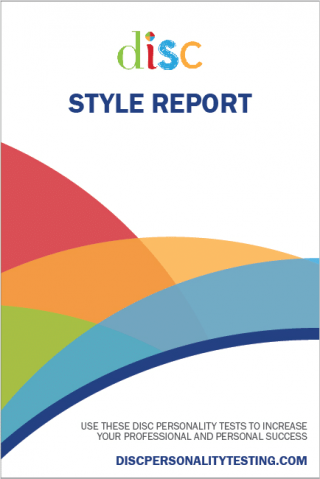One question that frequently comes up in discussions of the DISC assessment and profile report is this:
“Can you fool (or beat) the DISC assessment?”
The short answer to that question is: Yes, you can “beat” the DISC assessment.
Our follow-up question would be: Why would you do that?
The purpose of the DISC assessment is to develop better self-awareness personally and better understanding of others so that you can communicate, build teams, lead, and resolve conflicts more easily and more quickly.
If you know enough about the DISC model or have taken the DISC assessment (or other similar assessments) before, you can manipulate your answers to make it say pretty much anything you want it to say. You can do that, and you are only fooling yourself.
If someone has asked you to take the DISC assessment as part of a hiring process or team building exercise, it might appear that the other person is looking for a particular result as part of hiring you or giving you other job related opportunities. In that situation, you might feel tempted to guess the results they want to see and then manipulate your answers to give the other person what they want. Our advice is: DON’T DO THAT!
The full discussion of why we think trying to fool the assessment for a job application or opportunity is a bad idea is more involved (and nuanced) than what we’re about to say here. With that caveat being said, here are the two key reasons we would give for avoiding the temptation to try to “beat” the DISC assessment:
- If they are using the DISC assessment as a hiring criteria (as opposed to one factor among many), they are using the assessment improperly. Your DISC style might indicate what work environments are more or less comfortable for you, some perspective on what might motivate you, and some insight into how you might fit into a team. And, they are not useful for predicting your ability to do a particular job or task. Your DISC style can be one factor among many to evaluate fit between you and a role, and it is not sufficient by itself to predict success or failure. It should never be used as a “go/no-go” decision criteria.
- If you manipulate the assessment, you can get yourself into a really uncomfortable situation. Your style will eventually reveal itself to people who understand the DISC model. You cannot (at least for very long) “hide” your style. If your natural DISC style makes a situation or environment uncomfortable for you over time, it’s best to either avoid the situation entirely or to enter it openly and honestly so that you can work with other people on the team to find a way to thrive in the environment. When you try to “fool” or “beat” the DISC assessment, you hurt no one but yourself.
We recommend that you simply take the assessment and get the results so that you can build the self-awareness you need to better connect and communicate with other people.

